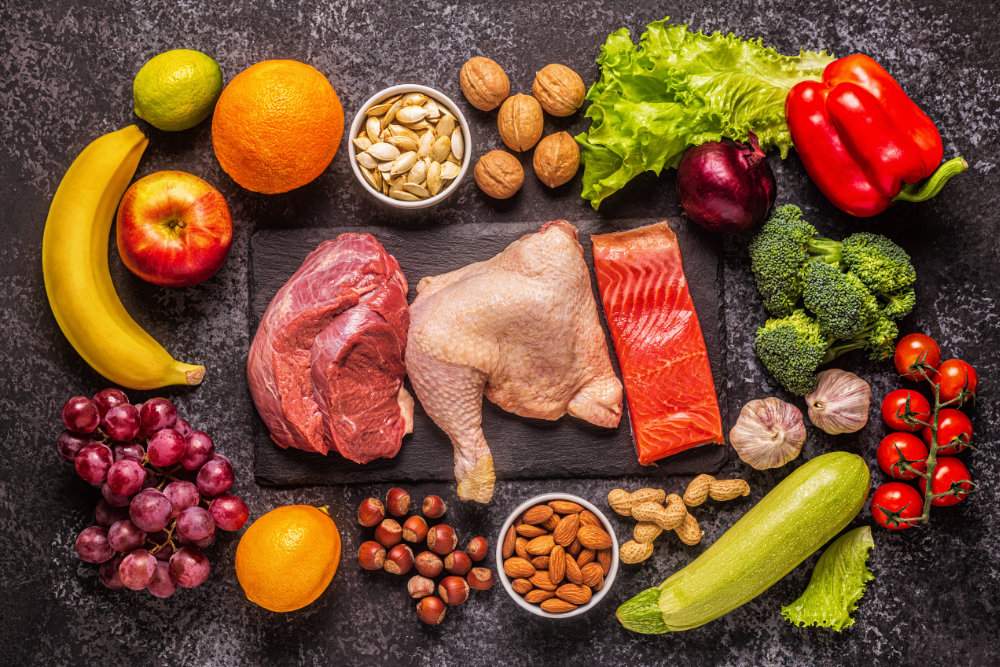Building muscle strength isn’t just about hitting the gym. What you eat plays a massive role in how strong your muscles become and how well they recover after workouts. If you’re serious about getting stronger, you need to fuel your body with the right foods.
What foods actually build muscle strength?
Protein-rich foods are the foundation of muscle strength. Your muscles need amino acids from protein to repair and grow stronger after exercise. Research shows you need at least 20 grams of protein per meal to maximize muscle protein synthesis.
- Lean meats — Chicken breast, lean beef, turkey
- Fish — Salmon, tuna, barramundi
- Eggs — Complete protein with all essential amino acids
- Dairy — Greek yogurt, cottage cheese, milk
- Legumes — Lentils, chickpeas, black beans
- Nuts and seeds — Almonds, peanuts, chia seeds
Studies from the American Journal of Clinical Nutrition prove that people eating 1.6 grams of protein per kilogram of body weight daily gained significantly more muscle strength than those eating less protein.
How much protein do you need for maximum strength gains?
You need 1.6 to 2.2 grams of protein per kilogram of body weight daily for optimal muscle strength development. For a 70kg person, that’s 112 to 154 grams of protein per day.
This isn’t just theory. A 2018 meta-analysis of 49 studies found that protein intake above 1.6g/kg body weight maximized strength gains from resistance training. Going below this amount significantly reduced muscle development.
To put this in perspective with Australian grocery prices:
- 200g chicken breast (46g protein) — $6.00
- 3 eggs (18g protein) — $1.50
- 200g Greek yogurt (20g protein) — $3.00
- 30g almonds (6g protein) — $1.20
- Total: 90 grams of protein for about $11.70 per day
Which carbs boost your muscle performance?
Complex carbohydrates fuel your workouts and help muscles recover faster. Your muscles store carbs as glycogen, which provides energy during strength training.
- Oats — Slow-releasing energy for sustained workouts
- Sweet potatoes — High in potassium for muscle function
- Brown rice — B-vitamins for energy metabolism
- Quinoa — Complete protein plus complex carbs
- Bananas — Quick energy and potassium
Research from the International Journal of Sports Medicine shows athletes eating 5-7 grams of carbs per kilogram of body weight performed significantly better in strength tests than those eating fewer carbs.
What fats help build stronger muscles?
Healthy fats support hormone production, including testosterone, which directly impacts muscle strength. You need fats for optimal muscle function and recovery.
- Omega-3 fatty acids — Reduce inflammation, speed recovery
- Monounsaturated fats — Support testosterone production
- Saturated fats — Needed for hormone synthesis (in moderation)
Studies show people eating 20-35% of calories from healthy fats had better strength gains than those on very low-fat diets. Omega-3s from fish oil reduced muscle soreness by 30% in trained athletes.
When should you eat for maximum muscle strength?
Timing your nutrition around workouts maximizes muscle strength development. Your muscles are most receptive to nutrients immediately after training.
- 20-30g protein
- 30-50g carbohydrates
- Example: Greek yogurt with banana
- 25-40g protein
- 30-60g carbohydrates
- Example: Protein shake with milk and berries
Research from the Journal of Sports Sciences proves eating protein within 2 hours after training increased muscle strength gains by 25% compared to waiting longer.
Many people ask which food is good for muscle strength, and the answer is clear: you need a combination of high-quality protein, complex carbohydrates, and healthy fats timed around your workouts for maximum results.
What supplements actually work for muscle strength?
While whole foods should be your priority, certain supplements have strong research backing for muscle strength:
- Creatine monohydrate — Increases power output by 15%
- Whey protein powder — Convenient post-workout protein
- Vitamin D — Deficiency reduces muscle strength significantly
Australian research shows 80% of people have insufficient vitamin D levels, which directly impacts muscle function. A simple blood test can check your levels.
How much does proper nutrition cost in Australia?
Building muscle strength through nutrition doesn’t have to break the bank. Here’s a daily meal plan under $25:
- Breakfast: 3 eggs with 2 slices wholegrain toast — $3.50
- Lunch: Tuna salad with chickpeas and vegetables — $6.00
- Dinner: 150g lean beef with sweet potato and broccoli — $12.00
- Snacks: Greek yogurt and almonds — $3.50
- Total daily cost: $25.00
- Total protein: 140 grams
- Total calories: 2,200
FAQ: Common Questions About Muscle Strength Nutrition
Can you build muscle strength on a vegetarian diet?
Yes. Plant proteins like lentils, quinoa, and tofu provide all essential amino acids. You just need to eat a variety of protein sources daily.
How long before you see strength improvements from better nutrition?
Most people notice increased energy within 1-2 weeks. Measurable strength gains typically appear after 4-6 weeks of consistent proper nutrition.
Do you need to eat meat to get strong?
No. Plant-based athletes can achieve excellent strength gains. The key is getting enough total protein from varied sources.
Should older adults eat differently for muscle strength?
Yes. People over 50 need slightly more protein (1.2-1.6g per kg body weight) due to reduced protein synthesis efficiency.
What’s the biggest nutrition mistake people make?
Not eating enough protein consistently. Many people only focus on protein around workouts but need it throughout the day.
The bottom line is simple: consistent nutrition with adequate protein, smart carb timing, and healthy fats will dramatically improve your muscle strength. Start with whole foods, time your meals around workouts, and be patient with the process.

